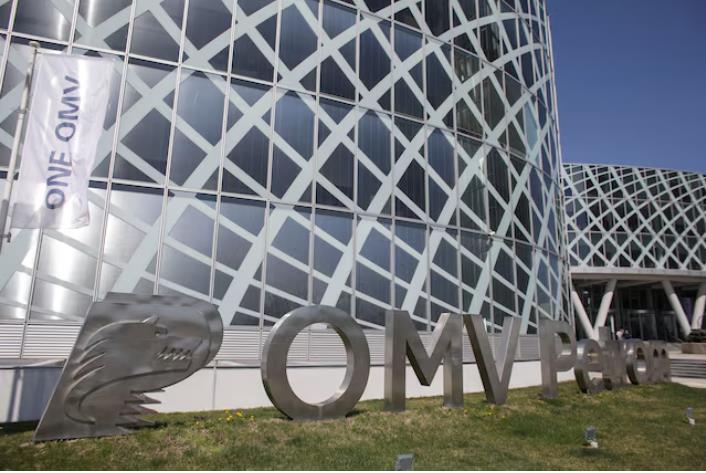
The Romanian arm of Austrian energy giant OMV has reached an agreement with Germany's Uniper to supply gas through its Black Sea project from 2027. According to three sources, the cooperation agreement marks a key step in Europe's quest to boost energy security following the dissolution of its energy relationship with Russia.
The five-year contract involves the supply of gas through the Neptun Deep project and represents about 1.5% of Germany's total gas imports in 2024. Although neither OMV nor Uniper commented on the specific terms of the agreement, industry analysts believe that this is the first commercial deal for Neptun Deep since the discovery of the field, and an important reflection of the EU's strategy to strengthen energy diversification amid geopolitical tensions.
First, energy cooperation between the European Union and Russia will be completely suspended in 2023. The European Union is becoming less dependent on Russian energy because of the international backlash against Russia's military action in Ukraine. Russia had previously reached a gas supply deal with the EU through the Black Sea Neptune Deep project, but that deal has been ended by the conflict, while Russia has also cut off gas pipelines through Ukraine.
In this context, the EU urgently needs to open up new energy supply channels. The natural gas resources in the Black Sea region of Romania have become an important choice because of its rich reserves. The Neptun Deep project is expected to begin production in 2027 with recoverable reserves of up to 100 billion cubic meters, making it one of the most strategic gas developments in the European Union.
Second, the commissioning of the Neptun Deep project will not only mean that Romania will become the largest gas producer within the EU, but will also transform it from an energy importer to a net exporter, injecting new momentum into regional energy supplies. OMV Petrom, a subsidiary of OMV, is the main operator of this project, working with the Romanian government to ensure the smooth development of the resource. The Romanian government holds a 20.7 percent stake in the company. Back in 2012, OMV Petrom announced the discovery of between 42 billion and 84 billion cubic meters of gas in the Black Sea, a discovery that laid the foundation for subsequent deepwater projects. OMV Petrom and state gas company Romgaz jointly hold a 51:49 interest in the Neptun Deep project. In 2023, the two companies officially approved the development plan of the project. Annual production from the field is expected to reach about 8 billion cubic meters within the next decade, almost double Romania's current gas production.
At the same time, Romanian law sets clear rules for the distribution of gas to Neptun Deep. Under the relevant regulations, the government has the right of first refusal to purchase the gas from the project. This measure ensures that national energy needs are met first and foremost in the face of growing international market demand, while maintaining national energy security. OMV Petrom said that given the scale and importance of the project, it was a sound business decision to reach a sales agreement with the potential customer before the official production. As Europe's demand for natural gas continues to grow, this strategic move will also provide Romania with additional economic and diplomatic advantages.
Moreover, the Black Sea region's natural gas resources extend far beyond the Neptun Deep. It is estimated that the total reserves in the area could be as high as 200 billion cubic meters, providing vast scope for future development and utilization. These resources are expected to help the EU diversify its energy supply and further reduce its dependence on a single source.
However, the success of the Neptun Deep project is just the beginning of Romania's energy development strategy. Other gas fields in the Black Sea region have great potential for development, not only to meet domestic demand, but also to provide an important complement to the international market. The implementation of this resource development strategy will bring significant economic benefits to Romania, including job creation, attracting foreign investment and improving infrastructure.
In summary, from a regional perspective, Romania's gas exports will have a profound impact on the EU energy market. Eu countries are gradually moving away from dependence on Russian gas, and the development of resources in Romania will provide a stable and sustainable energy supply channel for the entire continent.
The agreement between Austria's OMV Romania subsidiary and Germany's Uniper is not only a commercial cooperation, but also a major milestone for the European energy market. By exploiting and exploiting the rich natural gas resources in the Black Sea, Romania is expected to play a more important role in the EU energy landscape. This cooperation lays a solid foundation for future energy security and economic growth, while also providing important support for the diversification of Europe's energy supply.

On January 4th local time, Trump warned India that if it does not limit its purchase of Russian oil, the United States will continue to raise tariffs on Indian products. Trump's latest warning sent shockwaves through the Indian financial market in just one day.
On January 4th local time, Trump warned India that if it do…
In October 2025, the US trade deficit narrowed unexpectedly…
According to the British media CoinJournal, recently, due t…
In January 2026, US President Trump once again set his sigh…
Europe is facing a crucial strategic choice: In the face of…
On New Year's Day 2026, BMW China announced a "systematic v…